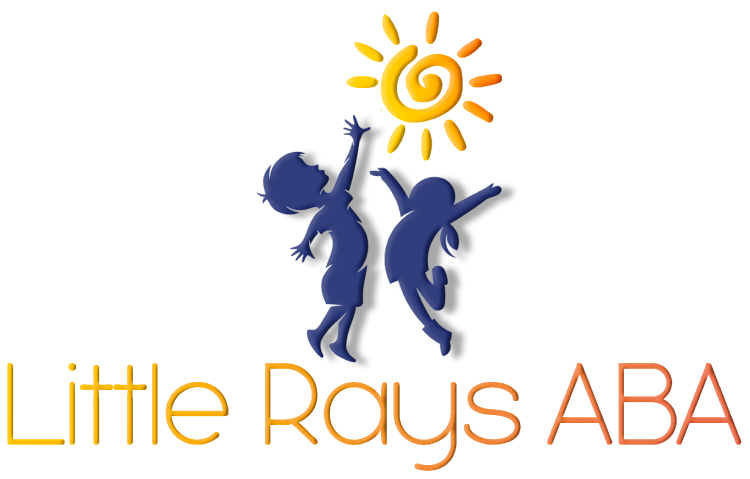
Top 10 Worst Jobs for Autistic Adults
Employment is a big step to being independent, but it can be hard for autistic adults to find the right job. People who are on the autism spectrum or have autism spectrum disorder (ASD) all have their own challenges and strong skills. Sometimes, the job market offers work settings that make things harder. There are career paths that seem good for anyone, but they might not work out because of things like sensory overload, stress, or even social pressure. When we see and understand these problems, we can help autistic individuals go after jobs that fit their own abilities and make life better for them.
Top 10 Worst Jobs for Autistic Adults
Some jobs are hard for autistic adults. This is because the work can have a lot of social demands. There may be strong lights or noise, too. Also, the place might often change in ways you do not know. All of these things can make some jobs the worst jobs for autistic adults. For example, working in a place where you have tight deadlines or it is very busy all the time may not be good. These jobs do not fit well with the sensory or executive functioning needs of many autistic adults. It is important to see what these hard jobs are. Doing this helps people narrow down their career paths. When you know what to avoid, you can look for work that is good for your well-being and keeps you happy for a long time.
Now, let’s look at the ten worst jobs for autistic adults.
1. High-Stress Customer Service Roles
Customer service jobs often need strong social skills. People have to pick up on social cues and take part in back-and-forth talking. Many autistic adults may struggle with these tasks, since social interaction can be hard for them. The job also needs a person to stay calm when fixing problems or dealing with upset people. This can make stress worse and lead to emotional exhaustion.
When working in places like busy call centers or stores, things can get even harder. There may be a lot of noise, many people moving around, and even bright or flashing screens. These things can cause sensory overload for autistic individuals, who might be sensitive to these sensory stimuli. This can make it harder to work well or enjoy their job.
On top of that, workers are expected to multitask. They might need to answer customer questions, talk with their team, and handle different tools at the same time. These tasks can make it tough for people who already have to work hard to manage their executive functioning. Because of all of this, many autistic adults feel that customer service roles are not the best fit. They often look for other career paths that can meet their needs better.
2. Unpredictable or Rotating Shift Work
Jobs with rotating schedules or shifts that change are hard for people on the autism spectrum. Autistic people do well when there is a routine that does not change. When a job does not offer this, it can make the person feel upset or off-balance. Changing work hours can also make sleep patterns worse. This may make sensory sensitivities stronger, which can affect how well a person works.
Problems with executive functioning have a big effect here. Jobs that keep changing need you to manage your time well and plan ahead. This is not always easy for those who find it hard to stay organized. The lack of consistency can make it tough for autistic individuals to get ready for what is needed on different workdays.
Workplaces with different schedules may also not think about things like noise levels or other sensory stimuli, for example, bright lights. When these change a lot, it can make autistic people feel more uncomfortable and less productive. These jobs usually are not a good fit for autistic individuals who want stable and easy-to-manage work.
3. Fast-Paced Food Service Positions
The food service industry is known for being fast and demanding. Autistic adults can find it hard to handle the loud sounds, busy surroundings, and quick choices that the jobs often need. There is a lot of noise from talking, dishes banging, and machines. This can lead to sensory overload for people on the autism spectrum.
Trying to do many things at the same time—such as making food, taking payment, and answering questions—can be very tough for those who have problems with executive functioning. It may lead to more stress and mistakes. This makes working in food service frustrating for them.
There is also a lot of social interaction in these jobs. You talk with customers, other workers, and your boss all the time. For autistic adults who find it hard to keep eye contact or “read” social cues, all this social contact can be overwhelming. Because of these reasons, jobs in food service might not be a good match for autistic adults.
4. Sales Positions With Aggressive Targets
Sales jobs often need a lot of talking, people skills, and the ability to bounce back when things get tough. For autistic individuals, social communication can be hard, so these roles can be a bad fit. Doing things like networking, making pitches, and going to events all the time means you have to know the small rules of talking with people. This makes it even harder.
Having to hit tough sales goals and do the work by tight deadlines makes everything more stressful. Big demands and not knowing what will happen can lead to stress. That may hurt how you do your job and how you feel in your life.
These jobs are also very competitive, which adds more pressure to do better than others. Most sales roles only look at who sells the most, not what each person really needs. They don’t support the unique skills autistic people have. That is why these kinds of jobs might lead to burnout and hurt your chance to grow. There is a need for better career paths that offer real support.
5. Jobs Requiring Frequent Public Speaking
Public speaking jobs can be hard for autistic individuals. This is mostly because these jobs need a lot of talking with people and social interaction. Standing in front of crowds, answering questions, and trying to sound smooth can feel stressful and tiring.
Many times, these jobs want you to think fast and give answers without much time. This can make stress even higher. Autistic adults often do well with work that has clear steps and rules. They may have a hard time when tasks are not clear or when things change a lot, which is common in jobs where you talk to the public.
Also, when getting ready for a talk, there is the need to follow social rules and what the audience wants, even if no one says them out loud. This may not match how autistic individuals think, get, and share information. All of these issues show why jobs that focus mainly on public speaking are often not the best fit for autistic adults who want work that is supportive and easier to handle.
6. Work in Loud, Overstimulating Environments
Working in places with a lot of noise and activity is tough for autistic individuals. The main reason for this is sensory processing. Jobs at construction sites, manufacturing plants, or busy warehouses have loud machines, bright lights, and a lot of movement all the time.
All this sensory stimuli can be too much for autistic adults. It can cause stress and make it hard to focus. In a workplace where they can’t control these things, it’s even harder for them to handle their sensory sensitivities.
Jobs like these often need good physical coordination and many tasks at once. This can be hard for people who have trouble with executive functioning. These busy and noisy places make it more difficult for autistic adults to do their best and can hurt their emotional well-being. Quiet and well-structured workplaces are much better for people who have these needs.
7. Emergency Response and Crisis Jobs
Jobs like firefighter and paramedic are very stressful. They need you to think fast, have strong bodies, and adjust to new sounds or sights right away. Some autistic individuals may find that these jobs do not match their needs.
When you are at an emergency, there is a lot of noise, with sirens, big crowds, and bright lights. This can be too much for those with sensory sensitivities. It can make it hard to focus. These jobs also need you to stay calm, think fast when there is pressure, and do many things at once. All of this can make the stress hard to handle.
There is also a lot of moving and hard work for long hours. You never know when you will be on the job. This can mess up routines and be too much for some people. Because these jobs are so tough, many think they may not be a good idea for autistic adults. They may want to look for work with more structure and a steady schedule.
8. Highly Social Team-Based Roles
Jobs that focus on working with others, like project management and team research, need strong people and talking skills. Autistic individuals can have a hard time with group work and understanding social cues that are important in these jobs.
There is a lot of time spent talking with team members. Solving problems with the group and thinking of ideas together can be tiring and stressful. People may not always understand each other because of how they each read social cues. There are rules in these teams that are not always said out loud, and autistic adults can find these hard to get.
These jobs also change their plans often. That makes it tough for those who want things to be steady every day. Most companies give very little help to people who are neurodiverse. Because of this, jobs where teamwork is the most important part are not the best career options for autistic adults looking for good work for themselves.
9. Positions With Ambiguous Instructions
Ambiguity in job responsibilities can be a big problem for autistic individuals. Many of them do best in jobs that are clear and well-structured. If a job has vague instructions, keeps changing, or does not give clear ideas of what is expected, it can hurt executive functioning. This makes it hard to know what to do and can add stress.
Some tasks need people to think in an abstract way or solve big problems. For autistic adults, these types of jobs can also make it hard to complete tasks. It gets worse if they have trouble picking up on hints or things not directly said. This makes it tough to do their work well.
There are also many roles where people do not get enough feedback or guidance. For neurodivergent employees, this can make meeting goals or finishing work much harder. All of this shows the need for clear and open communication at work. With good structure and clear rules, autistic individuals can do better in their jobs.
10. Workplaces With Low Neurodiversity Awareness
Workplaces that are not aware of neurodiversity create big challenges for autistic individuals. When employers do not know much about autism, they often do not offer helpful things like flexible schedules, sensory-friendly spaces, or simple and clear ways to talk.
If there are not helpful systems, like employee groups or job coaching, it becomes even harder for autistic individuals to keep up with the work. They may feel left out at work, which can make them less happy and can also lower how well they do on the job.
Also, if the workplace does not have fair and open ways to include everyone, autistic individuals may not get a chance to use their strengths and skills. Their work may not be seen for what it is worth. To have a workplace where people feel good about what they do, it is important to pick places that help and understand neurodiversity.
Conclusion
Finding the right job can be hard for autistic adults. Some jobs cause more stress and can make people feel even more uncomfortable. The jobs in this list often do not match well with the strengths and needs of autistic individuals. When we know about these challenges, parents, teachers, and employers can help make workplaces better. They can give more support and help autistic adults do well at work. It's important to choose jobs that fit the person’s skills and what they like to do. This can make work better and feel more rewarding. If you want help finding the right job or more support, you can talk to people who know about helping autistic adults find work.
At Little Rays ABA, we believe success starts with the right environment—not forcing a fit. As the best ABA provider in Florida, we help autistic teens and adults identify careers that match their strengths, not challenge their well-being. Our team provides real-world coaching, workplace readiness, and tools to navigate job settings with confidence. Need help finding the right path forward? Connect with Little Rays ABA and let's plan for a future that feels right.
Frequently Asked Questions
What are some signs a job may not be autism-friendly?
Jobs that have too much sensory stimuli, need constant social interaction, or have unclear instructions are usually not good for autistic adults. Workplaces that are loud or feel busy, do not have clear rules, or where you must network a lot can bring significant challenges for them. Busy or noisy places, changing schedules, and jobs with no clear goals make it hard for autistic adults to do well and feel comfortable.
How can autistic adults identify supportive workplaces?
Supportive workplaces care about inclusion. They give help, have set routines, and make spaces that are easy on the senses. When autistic individuals start the job search process, they should look into potential employers. It is good to see if these places care about neurodiversity and how happy their people are at work.
Are there accommodations that can make challenging jobs more manageable?
Yes, things like flexible schedules, remote work, tools to help with sensory needs, and help with talking in-person or online can make jobs easier to handle. It is important for autistic individuals to connect with support groups and work with employers who are ready to put these changes in place.
What are some alternative career options better suited for autistic adults?
Careers like computer science, data analysis, creative arts, and accounting often be good for people who do well with tasks that have structure. Vocational rehabilitation services can help autistic individuals find the options that fit their skills and things they like.
This is paragraph text. Click it or hit the Manage Text button to change the font, color, size, format, and more. To set up site-wide paragraph and title styles, go to Site Theme.
Sources:
- https://www.nimh.nih.gov/health/topics/autism-spectrum-disorders-asd
- https://www.autism.org.uk/advice-and-guidance/topics/employment/support-to-get-work-experience-and-find-a-job
- https://autismspectrumnews.org/navigating-career-pathways-challenges-and-opportunities-for-autistic-individuals/
- https://pmc.ncbi.nlm.nih.gov/articles/PMC3086654/
- https://www.medicalnewstoday.com/articles/sensory-overload
Related Posts





